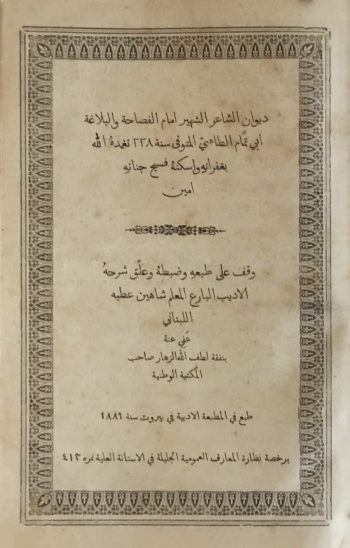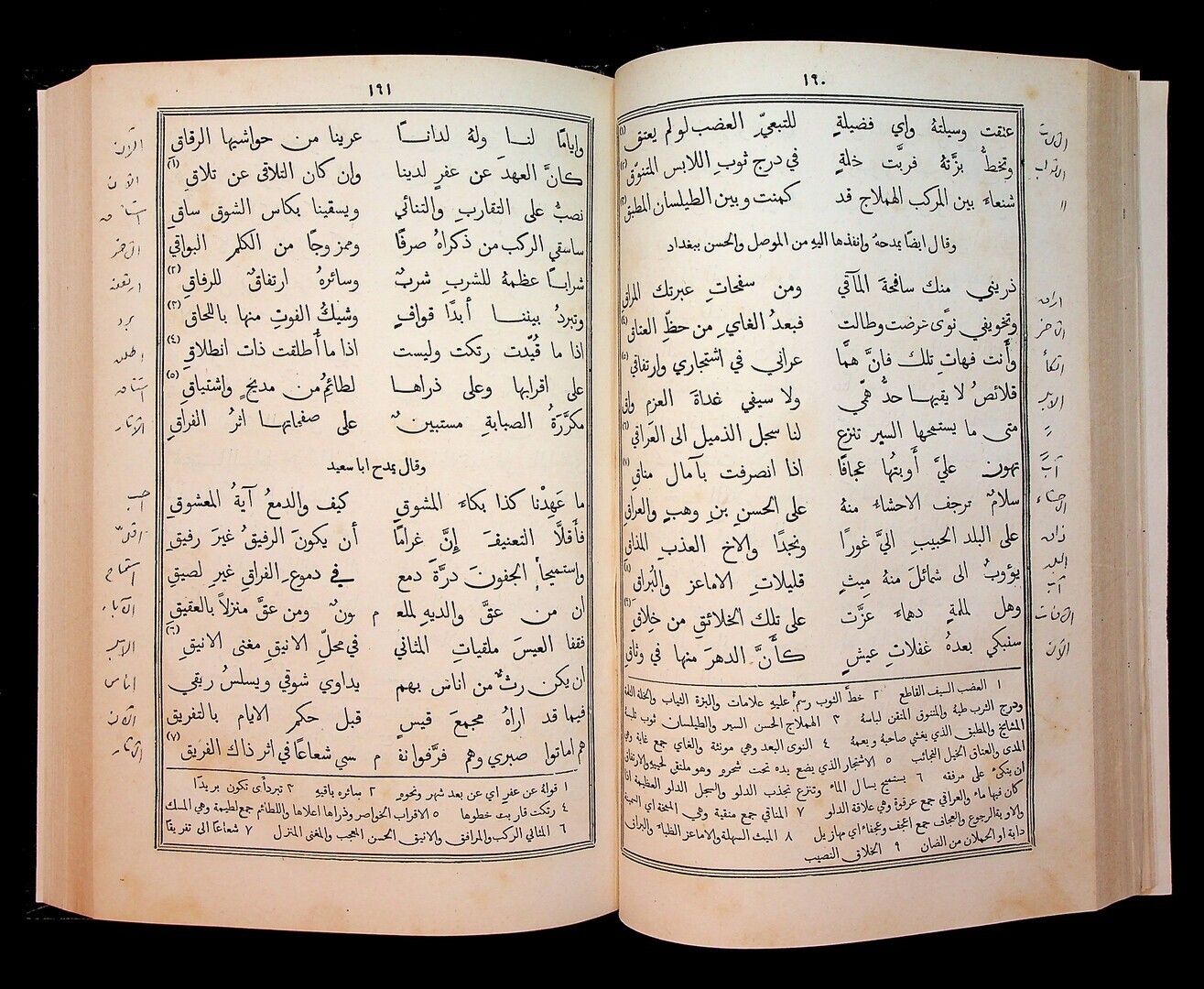Diwan Abi Tammam al-Ta’i.
Atiya, Rachid (Editor).
Synopsis
Abi Tammam Habeeb ibn Aws At-Ta’i (circa 188–231 AH / 796–843 AD) was a pioneering Arab poet of the early Abbasid era. He lived in Damascus and Homs. He is the first of three Abbasid poets whose influence on Arabic poetry is still felt today, the two others being Al-Buhturi and Al-Mutanabbi, who flourished respectively in the 9th and 10th centuries AD. His importance stems not only from the fact that he wrote splendid poetry, but he also theorized about poetry criticism, thus contributing significantly to the field. Some of his views on poetry stand, even today, as a testimony to his stature as a critic
Abu Tammam’s poems mostly treat important historical events such as the conquest of Ammorium, the campaign against Babak and the latter’s execution in 223 / 837, the execution of al-Afshin, the commander of al-Mu’tasim’s armies in 226 / 840, whom he himself had previously eulogized and many other such events.
Abu Tammam was well acquainted with the highest intellectual standards of his time. His contacts also allowed him to become closely acquainted with many current political and social issues which were clearly echoed in his Diwan.
This edition is edited and introduced by the Lebanese writer Rachid Atiya who also edited al-Buhturi Diwan and had served as newspaper editor in Lebanon, Egypt, and Brazil.








